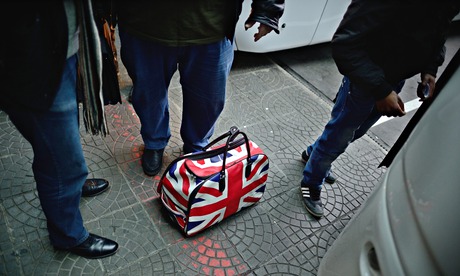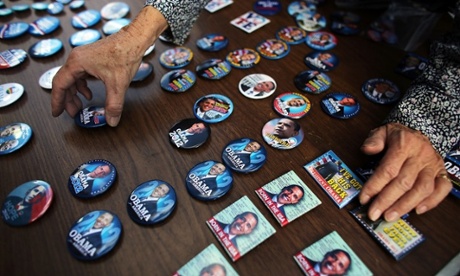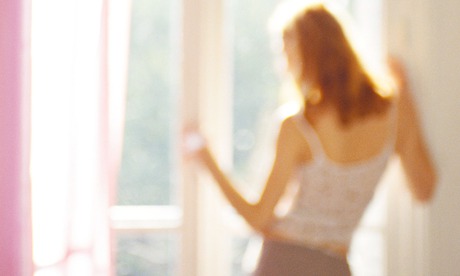There’s a religious slot broadcast every morning on the radio, called Thought for the Day, and it’s marvellous. Because it usually involves some bishop telling you what he did the day before, and shovelling Jesus into it somehow. So it will go: “Last night I was watching an episode of Ramsay’s Kitchen Nightmares, in which a poor hapless restaurateur once again found himself on the wrong end of Gordon’s somewhat ribald invective. And I began to think to myself ‘Isn’t this a bit like Jesus’? Because Jesus too went out for supper one night, and that turned into a bit of a nightmare. Good morning.”
The fact that this quaint tradition endures with few complaints, despite a campaign led by the National Secular Society, suggests that the modern atheists are losing. So does the popularity of The Book of Mormon, the gloriously blasphemous musical I’ve finally seen, which, despite a swearing, camp Jesus and a plot revolving around religion being made-up nonsense, is strangely affectionate towards religion. You’re invited to judge the evangelists on what they do, rather than on what they believe, and that may be a vital part of its success, compared with the modern atheists whose attitude is: “Of COURSE Jesus didn’t rise from the dead, you idiots.”
Richard Dawkins, for example, complained that a Muslim political writer wasn’t a “serious journalist” because he “believes Mohamed flew to heaven on a winged horse”. I suppose if Dawkins had been in Washington when Martin Luther King made his famous speech, he’d have shouted: “Never mind your dream, how can Jonah have lived in a whale, you silly Christian knob?”
Followers of this ideal just can’t have it that some people are religious, even if they’re not doing any harm. I expect that during Ramadan they wander around Muslim areas in daylight shoving sandwiches in Muslims’ mouths, while reading from a biological paper on the workings of the digestive system.
One flaw in this approach is that it isn’t likely to win many converts. In all the debates in which Dawkins has argued with believers, there can’t have been many occasions when someone has said: “Ah NOW I see: we’re organisms composed of a complex series of particles. So that goddess with all the arms must be a load of bollocks.”
He can’t seem to grasp that what’s obvious to him might not look that way if you’ve been brought up in Catholic rural Spain or on the banks of the Ganges, so dealing with the intricacies of people’s ideas requires more than yelling science at them. If Dawkins were asked to treat an anorexic, he’d say: “This will be easy,” and shout, “Look – you’re NOT FAT, I’ll pick you up and chuck you over the wardrobe. THEN you’ll calculate that a man of my years couldn’t throw an adult unless they were in need of fattening up. So get these down you – they’re some pork pies I’ve got left over from Ramadan.”
The modern atheist often points to atrocities carried out by religious institutions, such as the tyranny of the Taliban or the child abuse of the Catholic Church, but isn’t it the actions of these people that are vile, not the religion itself? Unless your attitude is: “Those priests are a disgrace. They sexually abused children, covered it up for decades, then to top it all they give out stupid wafers in their service. How sick can you get”?
The contradictions of religion are certainly confusing. I spent a morning at a Sikh temple recently, where 4,000 free meals are provided for anyone who wants one, and hypnotic musicians play all day amid an addictive tranquillity. Everyone you meet exudes joy and respect, until I thought: “I reckon I could be a Sikh.” Then an elder informed me of the guru who fought for the Sikh people with such courage, that when his head was chopped off he carried on fighting for the rest of the day, blessed as he was by God. And if I’m honest, I think that’s where we had to agree to differ.
Even so, there’s so much to experience and discuss with followers at this temple – the process that led them from the Punjab to west London, the food, customs, community and music – so to start your acquaintance by explaining to them that you can’t run around without a head, maybe by performing a series of experiments with goats on the steps of the temple, would cut you off from any of that. In any case, if you turned up at Richard Dawkins’s house with 4,000 mates, I’d be surprised if you all got a meal out of him.
It’s almost as if the modern atheist is in agreement with the religious fundamentalist that a person’s attitude towards God is the most important aspect of their character.
This may be why, even among atheists, the strident anti-religious stance of those like Richard Dawkins appears less attractive than The Book of Mormon, whose creators said: “We wanted to write a love letter from atheists to religion.”
That must be the most heartening attitude of all, though if you were to take Cliff Richard and Abu Hamza to see it, they would probably literally explode in a fireball. Then millions from round the world would flock to see the site of such a miracle.





 Vicky Pryce in court
Vicky Pryce in court Inside prison
Inside prison
